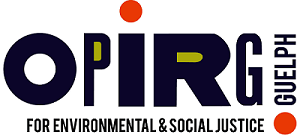Fight to Win – Inside Poor People’s Organizing by A.J. Withers
Fernwood Publishing: Halifax & Winnipeg (2021)
Review by Chelsea Emery
“As the ruling regime makes plans to “return to normal” following the Covid-19 pandemic, I am filled with anger, fear and sadness, as “normal” was never okay for poor communities – especially unhoused people. Normal means unhoused people are expected to be relatively invisible in public space and certainly not sleep in tents in parks regardless if there is nowhere else to go.”
This sentiment rings throughout A.J. Withers’ remarkable Fight to Win; an impressively thorough “political activist ethnography” which illuminates the political struggles of those involved in combatting the systemic problems facing all those in poverty today. From a position of personal experience, Withers presents their endeavors with Ontario Coalition Against Poverty (OCAP), a direct-action anti-poverty organization which combines the efforts of mass mobilization with social casework to an effective end. Fight to Win gives detailed on-the-ground analysis of four major OCAP campaigns, complete with relevant data which demonstrate the necessity and efficacy of these actions. Beginning with some projects in 2016, and continuing through into the COVID-19 pandemic, Withers details exactly which tactics made OCAP most effective in these times of increasing wealth inequality and austerity.
In addition to the street-level reporting of the OCAP-led anti-poverty struggles, Fight to Win also stays grounded within a comprehensive theoretical mapping of the ways in which the City of Toronto and the Province of Ontario as neoliberal structures maintain their hegemony, while simultaneously demobilizing resistance to it. From an understanding of the neoliberal ideology which continues to drive the gradual privatization of the public sphere, Withers is able to uncover the mechanisms by which the state upholds existing class domination on behalf of the technocratic elite. Utilizing this framework of neoliberalism as a set of social, political and economic relations, Withers explicates the mechanisms by which those who seek social change are systemically excluded from political power. These “practices of assemblage” are thoroughly and accessibly described, and offer a detailed understanding of the key points of resistance. This allows for a useful and insightful analysis of the methods of resistance that are most effective, and an identification of the points in which the state is most vulnerable to organized political confrontation.
This text further provides a useful resource for familiarizing oneself with some of the major political actors involved in anti-poverty work in the Greater Toronto Area (GTA) between 2016-2021. The detailed account of specific political campaigns provides a comprehensive overview of the political actors involved in this work on both sides, allowing activists working toward specific causes to determine from where they can expect to receive political opposition. This understanding of the power relations between political actors is an essential contribution for those who seek political change.
Fight to Win manages something difficult for this genre of literature, in that it reads as an approachable narrative of class struggle from the perspective of those personally involved, while simultaneously offering valuable political and sociological scholarship on these issues. This is a powerful combination, suggesting to the reader that, armed with a comprehensive understanding of these social mechanisms, these struggles are achievable. In demonstrating how political theory can be applied, and which applications gave OCAP some real political wins, Fight to Win manages to be an incredibly useful handbook of political resistance.
Fight to Win maintains a tone of cautious optimism for the future of anti-poverty activism. Withers makes the case that though these struggles will not be easy, they are entirely necessary, and that with appropriate effort they can be won. Far from a dry academic text, Withers’ narrative reads as empathetic and personal. Quotes from conversations between organizers are peppered throughout the text, and the deeply human motivations behind the described struggles can be easily felt by the reader. One really gets a sense of the sadness behind the political losses, but also the sheer relief when these struggles are won, and can feel their importance. It is also notable that while Withers doesn’t stray away from illuminating the unpleasant conditions faced by those in poverty, this is done from a position of humanity and familiarity with these people. Those struggling are never treated as abstract subjects, but retain their dignity as those who deserve their basic human rights. Nor does Withers go too far so as to delve into exploitation of the conditions/misery of these people in order to make a political case; at no point does this text approach the manipulation of real suffering (some have referred to this phenomenon as “poverty-porn”), unfortunately all-too-common in activist literature. Instead, Fight to Win treats the matter with the precise level of distance it deserves to make the importance of these struggles felt.
From a detailed theoretical grounding and inclusion of substantial empirical data, to summaries of effective tactics of anti-poverty direct action, Fight to Win offers a great resource to those involved in social justice activism. Sharing the lessons from their own political experiences, alongside a comprehensive political theory made accessible, A.J. Withers has made a significant contribution to contemporary activist literature. By providing a detailed account of the major political actors in Toronto, this book offers valuable insight for social justice movements. Fight to Win is a must-read for all those involved in activism in the Greater Toronto Area, but also those involved in anti-poverty resistance across the neoliberal order.
